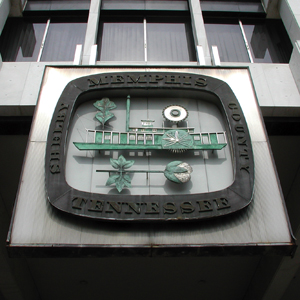What’s most disconcerting about the regularly inflammatory behavior of the Memphis Police Associations is that its members end up looking not so much like dedicated public servants as a special interest group pursuing a scorched earth attitude that treats other city departments as enemies.
Dependable victims to the overheated rhetoric are the facts, particular crime statistics and capital projects by City of Memphis.
It’s nothing stranger than police union officials telling us how unsafe Memphis is since it’s tantamount to admitting that they haven’t succeeded in their jobs. It was only a couple of weeks ago that the union’s campaign of fear-mongering resulted in a confrontation between the police director and the head of the police union. In the end, they mended the rift but it was pretty hard not to be sympathetic with the director’s position that the constant campaign of misinformation is nothing short of insubordination.
Just the Facts, Ma’am
The union president reminds us of a mayoral candidate several years ago who lost his race by tens of thousands of votes but absolutely knew the election had been stolen from him because everyone he met told him they had voted for him. The union leader is absolutely convinced that the crime rate is going up because his members tell him so.
And yet, the data from Operation Safe Community in fact shows that from 2012 to 2013, the major violent crime rate decreased 6.3% and the major property crime rate decreased 4.4% (since 2006, the drop has been respectively 21.6% and 30.6%). It’s pretty hard to accuse the independent nonprofit of misleading the public on the crime statistics since it was only a few years ago when it pointed out that crime had climbed from 2011 to 2012 in violent crimes.
Memphis Police Association officials are convinced the numbers are wrong, but they have yet to present any research (such as that by Operation Safe Community’s highly respected criminologist) or any factual basis for their continued “Memphis is not safe” mantra.
You’ve Got to be Kidding
Meanwhile, the union president trots out another old favorite, when he said that City of Memphis should cut spending on projects like the retrofitting of The Pyramid into a Bass Pro Shops megastore. He said he wants to see better salaries and benefits as well as more police on the street (although there is no proven correlation between more cops and lower crime rates).
We refuse to believe that someone in a leadership position like his can be ignorant on basic city finances, so we can only deduce that he is intentionally misstating the facts. Surely, he must know that if the entire Pyramid project had never been undertaken, it would not have freed up one dollar that could have been spent on police services because of the funding source and statutory uses set out for that project by the tourism development zone.
Suggestions that the City of Memphis isn’t spending enough on public safety is disinformation in the extreme. Every dollar of city property taxes is not enough to cover the cost of the public safety budgets – it’s still $75 million short – and 80% of city employees are working in police and fire services. In fact, because of the disproportionate amount spent here for public safety, services like parks, community centers, and libraries go wanting and are funded at levels far below our peer cities.
Crime Fighting Is About More Than Cops
Here’s the hard reality of the arms race that is crime fighting in Memphis: It may be politically popular to put more money into public safety, but at a point, there is no cause-effect between more boots on the street and lower crime rates. Rather, sustainable – and affordable – crimefighting stems from a more comprehensive approach, one that also places emphasis on interventions and prevention programs.
That’s the irony of the imbalance in city budgets. The city departments that suffer cuts in their budgets – think libraries, community centers, and blight – also have impacts on the crime rate. They give students things to do after school, places to get together to do homework, and programs that teach study skills and healthy behaviors.
The public gets it. In the poll taken as part of the city’s Five-Year Strategic Fiscal Plan, the public strongly supports more funding for services like parks, libraries, and community centers and an overwhelming majority believe that intervention need as much attention as policing. They also support efficiencies like having civilian police employees answer minor car accident calls. In addition, 65% of the public either definitely or somewhat support changes to the current pension plan in order to contain future pension costs, but that’s a subject for another day.
Warping the Facts
Union leaders says that City of Memphis has spent too much on the riverfront, and yet, of the total amount spent there, only about 10% of the total comes from city revenues. The $215 million spent on redeveloping The Pyramid, removing Lone Star Concrete, gaining city control over the Memphis Cook Convention Center, and redeveloping the Pinch Historic District comes from the tourism development zone and do not take any money from the city’s general fund.
We’re expecting any day that the Police Association trots out their old “me first” ads that cited the Overton Square garage with a price tag of $18 million as a waste of money, disregarding the fact that the majority of the cost was for the flood detention basin under it and that a revived Overton Square is producing more sales taxes which help support the police budget.
The ad also mentioned things like the American Queen headquarters’ incentives without pointing out that there are revenue streams to pay them back. It criticizes the city’s incentives for Mitsubishi and Electrolux, and while incentives are always an issue up for debate, that’s not the point of the ad. Instead, it acts as if creating thousands of jobs in the wake of the recession is a waste of money, ignoring the fact that the best way to increase city revenues is through the expansion of the Memphis economy.
Equal Treatment
We do agree with union officials when they say that City of Memphis has “money management problems” and the wrong priorities. For us, the evidence for those conclusions is the tendency to treat police and fire divisions as if they are sacrosanct and that every proposed change to their budget is a threat to Western civilization (sadly, even the director of the police department defaults routinely to playing the “public safety” card).
The approach to public safety budgets in Memphis has been akin to Congress’ approach to defense budgets. They are exempt from discussions about cutting costs and demanding efficiencies, and because of it, it’s the other parts of the budgets that have seen their funding flatlined and reduced
Here’s the thing: every service of city government – no matter what it is – should be scrutinized in detail and every employee should be justified with specific performance measurements. The resistance to change in MPD is legendary and the scorched earth rhetoric is aimed at forcing elected officials to cower in the corner rather than ask the tough questions that need to be answered during budget hearings.
But the kicker to the union’s saber-rattling is this: it leaves the feeling that all the rhetoric is about manipulating emotions, ignoring the facts, and creating the kind of fear in Memphis that the police – and every city employee – should be working hard to eliminate.





I remember in 1970s and 1980s that the Atlanta police union put up huge billboards saying that it was not safe to be in downtown Atlanta. After that I didn’t go back. At the time, I didn’t realize that the billboards were part of the union’s blackmail campaign to extract higher salaries/benefits from the city.
I wonder how many of Memphis police’s rank and file have aptitudes for jump and grab or prevention through problem solving? As you say we need a balance; and community development can go a long way toward reducing crime if community policing is part of planning.
you nailed it! i have an issue with those who are paid to protect us constantly threatening to leave us hanging in an emergency if they don’t get their way. surely their campaigns these past two years have hurt their public image? i’d like to think so.
William Woodard: When you can’t argue the facts, always revert to ad hominem attacks. Very juvenile, but characteristic of you. Your comment does however point out that the facts about the efficiencies that could be implemented in the police department are indeed inarguable.